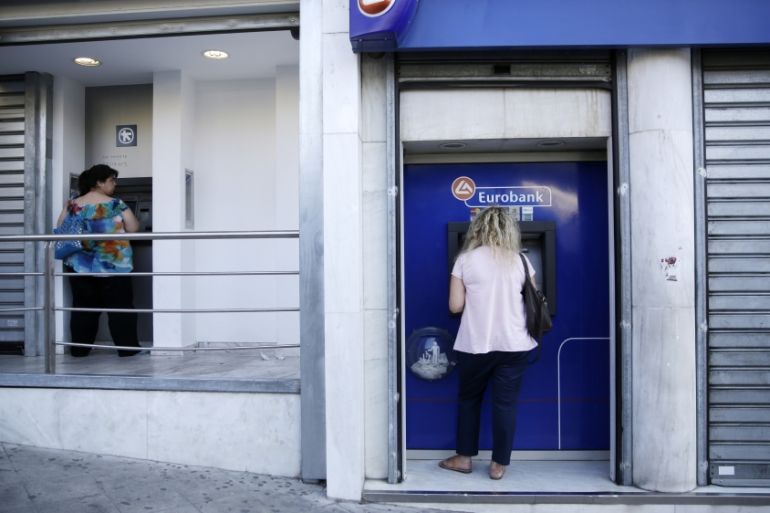Greece to reopen banks on Monday after 21-day shutdown
More flexible withdrawal limits will allow a maximum of 420 euros a week, in place of current limit of 60 euros a day.

The Greek government has announced that banks in the country will reopen on Monday, three weeks after they were shut down to prevent a financial collapse.
The statement comes as Prime Minister Alexis Tsipras prepares for the start of new bailout talks next week.
Keep reading
list of 4 itemsKey takeaways from Xi Jinping’s Europe trip
When will EVs become mainstream in the US?
Key takeaways from Xi Jinping’s European tour to France, Serbia and Hungary
The decree to reopen the banks came hours after new ministers were sworn in following a cabinet reshuffle in which Tsipras replaced dissident members of his ruling Syriza party following a revolt over the tough bailout terms.
The reshuffle allowed Tsipras to replace cabinet rebels with allies of his own or from his junior coalition partners, the right-wing populist Independent Greeks party.
The first action of the new cabinet was to sign off the banks’ decree, which will allow more flexible withdrawal limits that allow a maximum of 420 euros a week, in place of the limit of 60 euros a day currently in place.
However, restrictions on transfers abroad and other capital controls remain in place.
The move had been widely expected after the European Central Bank agreed to reopen emergency credit lines which the tottering Greek banking sector needs to survive.
Tsipras intends to seal the bailout accord with European partners over the next few weeks before likely new elections which Interior Minister Nikos Voutsis said this week could happen in September or October.
Athens ‘to negotiate hard’
Newly appointed Labour Minister George Katrougalos said that the governnment’s aim was to negotiate hard over the terms of the agreement and on how it would be implemented.
Katrougalos said the government, elected in January on an anti-austerity platform, would fight for an agreement that was “socially just,” and dismissed suggestions that it would have to take on the powerful labour unions and risk street protests.
“The left is with demonstrations. The left wants the people on the streets,” he said.
The latest bailout deal, approved with the support of opposition parties on Thursday after 39 Syriza rebels withheld their backing, agrees a painful mix of tax hikes, spending curbs and pension cuts as well as a rollback of collective bargaining agreements.
In addition, 50 billion euros ($54bn) in public assets are to be placed in a special privatisation fund as collateral for loans of up to 86 billion euros ($93.5bn) that must be agreed with European partners.
The German parliament approved the opening of bailout talks on Friday.
In an interview with the BBC, former Greek Finance Minister Yanis Varoufakis predicted that the economic reforms imposed on his country by creditors are “going to fail”.
Varoufakis said on Saturday the programme would “go down in history as the greatest disaster of macroeconomic management ever”.